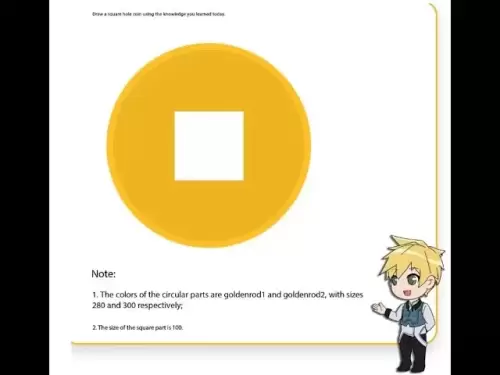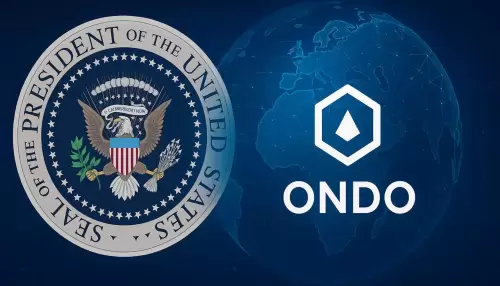 |
|
 |
|
 |
|
 |
|
 |
|
 |
|
 |
|
 |
|
 |
|
 |
|
 |
|
 |
|
 |
|
 |
|
 |
|
Cryptocurrency News Articles
It’s been 30 years since computer scientist Ben Goertzel wrote his first line of AI code
May 24, 2025 at 02:08 am
Today, as the world approaches the dawn of Artificial General Intelligence (AGI), who leads this breakthrough could have profound consequences for the future of humanity.
It’s been 30 years since computer scientist Ben Goertzel wrote his first line of AI code, already convinced that artificial intelligence should be decentralized. Today, as the world approaches the dawn of Artificial General Intelligence (AGI), who leads this breakthrough could have profound consequences for the future of humanity.
Speaking with Cointelegraph at the Consensus conference in Toronto, Canada, Goertzel said, "We’re likely to be able to launch AGI that can think and generalize beyond its training and programming within the next one to three years."
His project, SingularityNET, is a decentralized ecosystem building a global marketplace for AI services. Along the way, it has secured partnerships with Mind Network and Filecoin Foundation, invested $53 million in a modular supercomputer dedicated to decentralized AGI, and completed a token merger with Ocean Protocol and Fetch.ai to unify efforts in decentralized AI development.
In 2024, Goertzel founded the Artificial Superintelligence Alliance, the world’s largest open-source initiative dedicated to decentralized AGI.
SingularityNET and the ASI Alliance are "probably the only serious AGI R&D team outside of Big Tech, certainly the only one in the crypto space, and I don't mean any slight against others doing cool AI stuff in the crypto space," Goertzel said.
For Goertzel, these milestones represent a return to first principles. After decades spent developing AI and championing decentralization, the broader tech world is finally catching up, turning once-radical ideas into drivers of multi-trillion-dollar industries.
The substance behind decentralization
"In '93, '94, '95, it became clear to me AI should be decentralized," Goertzel said.
He wrote his first decentralized AI code the following year using a beta version of Java, then founded his first AI company in New York in 1997.
At the time, the internet Goertzel was working with was itself decentralized, so it seemed only natural that AI should be, too.
"What I didn't foresee then was that the internet would become so centralized, actually, because at that point the internet really was decentralized," he said.
The internet’s subsequent evolution watered down the foundation of decentralization. "Later on, what happened is, you have Google, you have Facebook, you have Tencent — you have these companies making huge centralized mirrors of the internet on these massive data centers," he said.
However, for the next leap into AGI, Goertzel sees decentralization as a foundational safeguard against the monopolization and misuse of the technology. That principle is embedded in the architecture of SingularityNET, Hyperon, and the upcoming ASI Chain, a modular blockchain designed for decentralized AI.
His argument is that AGI must be decentralized from the ground up, not adopted later, if it is to benefit humanity rather than serve concentrated power.
"The way the post-AGI period goes may be quite different depending on whether the decentralized ecosystem plays a role in it or not," he said, adding:
If the decentralized ecosystem isn't part of the picture, then we'll have a small number of large, powerful tech companies setting the agenda for the development of AGI and the deployment of AGI.
A brief foray into decentralized money
Perhaps due to his anarchist leanings and desire to "make anarchism real in cyberspace," Goertzel explored the idea of decentralized money back in the 90s.
As interesting as it sounded then, Goertzel and his friends concluded that transaction times would be too slow and expensive, rendering the idea impractical.
Just a few decades later, a person or entity named Satoshi Nakamoto created the first successful implementation of decentralized money known as Bitcoin (BTC). Ironically, its transactions are still slow and expensive — perhaps by design or due to its growing popularity — so Goertzel’s early skepticism wasn’t entirely misplaced.
He also admitted that, at the time, he and his friends simply “weren’t good enough at business to hit on the idea of money laundering, selling drugs and guns online and so forth as a business model.”
He was perhaps half-joking in a nod to the darknet marketplace Silk Road, which enabled anonymous transactions using Bitcoin until it was seized by authorities in 2013.
Disclaimer:info@kdj.com
The information provided is not trading advice. kdj.com does not assume any responsibility for any investments made based on the information provided in this article. Cryptocurrencies are highly volatile and it is highly recommended that you invest with caution after thorough research!
If you believe that the content used on this website infringes your copyright, please contact us immediately (info@kdj.com) and we will delete it promptly.






























































